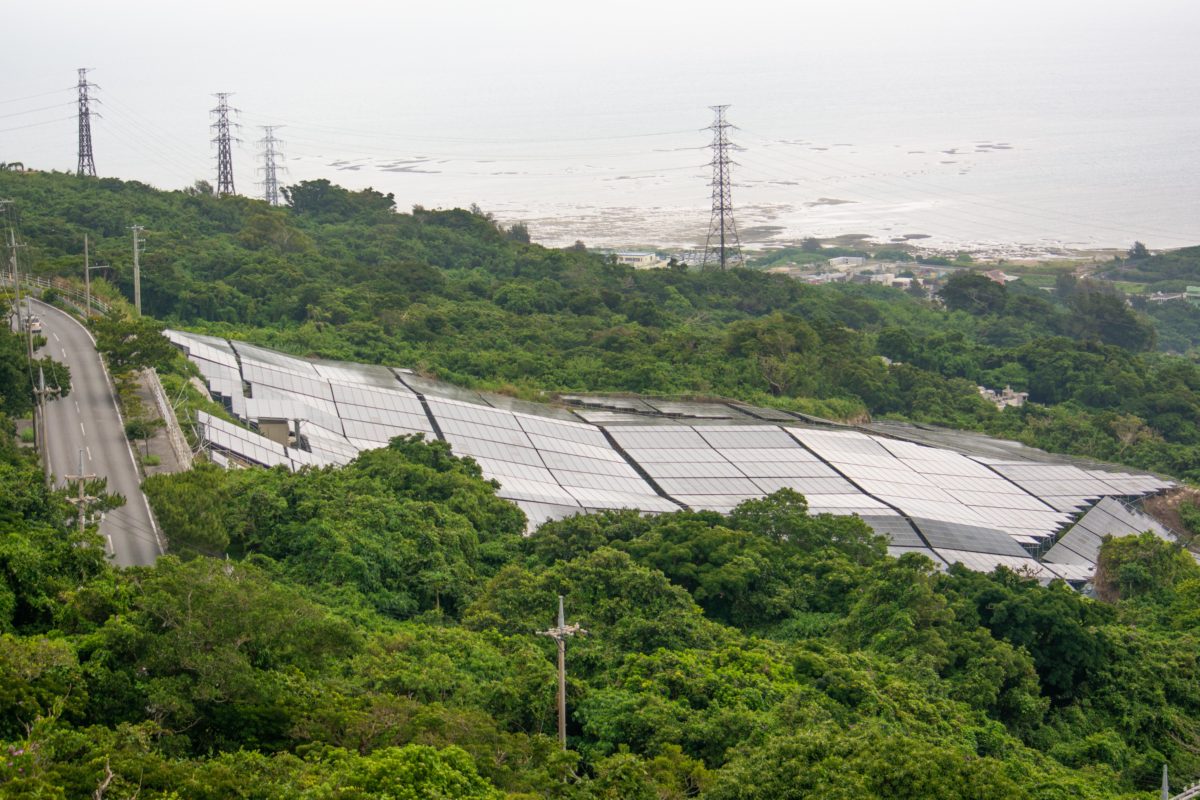The Japanese solar sector is still having problems driving down the cost of large-scale PV to levels seen in other mature markets, despite the nation having been one of the world’s first to provide incentives and to deploy significant capacity volumes.
In the third and latest auction for utility-scale PV projects – held in mid-December by the Ministry of Economy, Trade and Industry (METI) – the final prices fell slightly but remained considerably higher than those seen in markets such as Mexico, Saudi Arabia, Chile and Spain, which delivered record low bids of $0.020-0.030/kWh. Worryingly, December’s prices were also higher than those generated by recent auctions in Germany, France, Brazil and Argentina, which came in at $0.035-0.060/kWh.
The average price from Japan’s third auction was JPY15.01 ($0.136) per kWh, with the lowest bid JPY14.25 and the highest JPY15.45. METI had received 38 bids but pre-qualified only 16, with a total capacity of around 300 MW. It then selected seven projects with a total capacity of 196.6 MW.
The selected bidders were CS Yamaguchi Bofu, for a 5 MW project offering JPY14.25/kWh; Tida Power110, with 18 MW at JPY14.49; Isaac Corporation – 3 MW at JPY15; Pacifico Energy Corporation – 85 MW at JPY15.17; Sparks Green Energy & Technology Co Ltd – 21.7 MW at JPY15.34; Solar Power Development Research Institute Inc – 62.8 MW at JPY15.37; and Sennan Country Club, 1.2 MW at JPY15.45.
A litany of disappointments
In an under-subscribed first auction held in November 2017, only 140 MW of a hoped-for 500 MW of capacity was awarded, at an average price of JPY19.6/kWh.
The second auction, in September, was more successful in terms of capacity, with around 197 MW and a lowest bid of JPY16.47. However, METI had established an initial ceiling price of JPY15.50/kWh without telling participants until bidding had started. As the lowest bid was still JPY0.97 off METI’s desired maximum, the ministry said it was disappointed. The ministry added, as not all the 250 MW of capacity it had initially allotted was allocated, just 196.96 MW would be allotted in mid-December.
METI department the Agency for Natural Resources and Energy admitted it had been intended for the three auctions to secure 1-1.5 GW of new PV capacity.
Popular content
The Japan Photovoltaic Energy Association (JPEA) told pv magazine the result of the latest auction was disappointing for the industry, which is fully aware system costs must be lowered as soon as possible.
IHS Markit analyst Holly Hu agreed prices for large-scale solar in Japan remain too high. “The Japan market is unique, as its system cost [is] still at [an] high price with Japanese brands,” she told pv magazine. “And their cost in non-system parts is … higher than other regions [and includes factors] such as land and grid connection [and] installation labor cost.”
Uphill road in land of the rising sun
Japan’s long and difficult transition from FITs to auctions has prompted Fitch Solutions Macro Research to predict a strong contraction of the market for 2021-2027, with only an estimated 14 GW of new installations anticipated.
Land availability – in part due to restrictions on the use of abandoned agricultural sites – and grid constraints are becoming critical concerns, said the JPEA, which told pv magazine: “The Japanese PV sector is now increasingly developing projects in mountainous areas. However, we have considerably large land where farming is given up.” Around 73% of Japan is mountainous, with arable land making up only around 11.6% of the country’s surface.
Auctions for large-scale solar may become more successful when a huge pipeline of around 23.5 GW of projects initiated under the FIT scheme reach completion. METI recently decided to reduce FITs of JPY40-32/kWh to JPY21/kWh and the scheme is set to expire with no more contracts to be signed, but the market segment nevertheless remains more attractive than auctions.
This content is protected by copyright and may not be reused. If you want to cooperate with us and would like to reuse some of our content, please contact: editors@pv-magazine.com.



3 comments
By submitting this form you agree to pv magazine using your data for the purposes of publishing your comment.
Your personal data will only be disclosed or otherwise transmitted to third parties for the purposes of spam filtering or if this is necessary for technical maintenance of the website. Any other transfer to third parties will not take place unless this is justified on the basis of applicable data protection regulations or if pv magazine is legally obliged to do so.
You may revoke this consent at any time with effect for the future, in which case your personal data will be deleted immediately. Otherwise, your data will be deleted if pv magazine has processed your request or the purpose of data storage is fulfilled.
Further information on data privacy can be found in our Data Protection Policy.